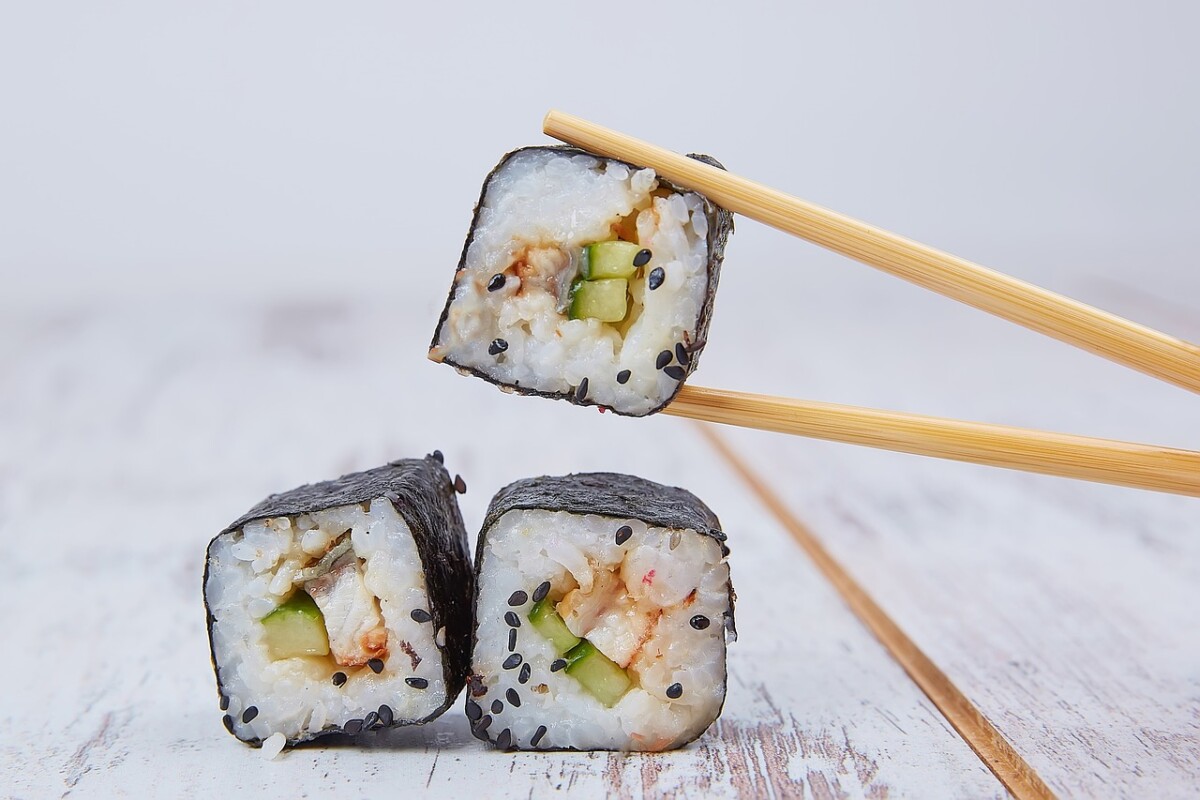Sushi - A special category hidden in rolls

Whether you eat it in the finest restaurant or buy it in a supermarket - both experiences certainly deserve their time and place. How much does it cost and is the sushi healthy at all?
There is a general belief that sushi is healthy - and that these rolls contain "tons" of nutrients, but is that really the case?
Some prefer to go to a top restaurant and spend hours enjoying a bite of some of the freshest and tastiest fish in the world, while others sit in a small street restaurant and order countless rolls made from all kinds of ingredients - from spicy tuna to shrimp. tempura to shrimp cheese. Whatever you prefer, both of these experiences certainly deserve their time and place, and it begs the question:
View this post on Instagram
How nutritious is sushi?
The nutrient profile of sushi - that is, the combination of macronutrients (proteins, carbohydrates and fats) and micronutrients (vitamins and minerals) - really depends on the ingredients used. But generally, a sushi meal "guarantees" a few things: Eating sushi can be a great way to get healthy fats (like omega-3 fatty acids), high quality protein, selenium and many other key nutrients.
View this post on Instagram
Salmon and mackerel are the main sources of two of the three most common omega-3 fatty acids: eicosapentaenoic acid (EPA) and docosahexaenoic acid (DHA). Consuming at least 1,6 grams of omega-3 fatty acids daily (for men over 18) helps support healthy cell development and can reduce the risk of chronic diseases - such as heart disease and certain cancers. .
View this post on Instagram
To order different types of fish when you get sushi means to eat different nutrients. For example, about 85 grams of yellow tuna contains 92 micrograms of selenium, which is 167% of the recommended daily allowance. Selenium acts as an antioxidant and is important for reproduction, thyroid hormone production and DNA synthesis. Consumption of sushi guarantees additional nutrition with seaweed. For example, kelp seaweed, which is used in salads, is rich in antioxidants such as vitamin C, manganese and zinc, which can reduce oxidative stress and improve heart health. In addition, certain types of sushi are made with nori, a algae that is a natural source of iodine.
View this post on Instagram
Does sushi have a lot of carbohydrates?
If you are afraid to eat sushi because of carbohydrates - especially refined white rice grains - you do not need to worry
White rice has gained a good reputation over the years, but rice can be a healthy part of the overall diet. Rice is a source of carbohydrates and provides the body with a lot of energy. Depending on the type, it can be enriched with important nutrients such as folic acid and other B vitamins.
Because you eat rice with high quality protein and healthy fats (both from fish), it is unlikely that your blood sugar will rise too much.
View this post on Instagram
How saturated is the sushi?
While the combination of carbohydrates, proteins and fats can definitely keep you full, it is advisable to combine sushi with salad (seaweed or other) or vegetables. They are enriched with fiber that helps with satiety, as well as additional vitamins and minerals.
View this post on Instagram
Are there any health risks associated with drought?
Certain species of fish may contain large amounts of methylmercury, a heavy metal that has been linked to some unpleasant side effects when consumed in large quantities. Therefore, opt for species that contain less mercury such as salmon and shrimp to reduce this risk. Because sushi generally contains raw fish, freshness is also crucial. Make sure your sushi is fresh and which restaurant it comes from. If it looks suspicious, do not take the risk. So, if the fish is not fresh, and the recognizable sign is a dull color and a strong smell of fish - do not eat it by accident!
View this post on Instagram


